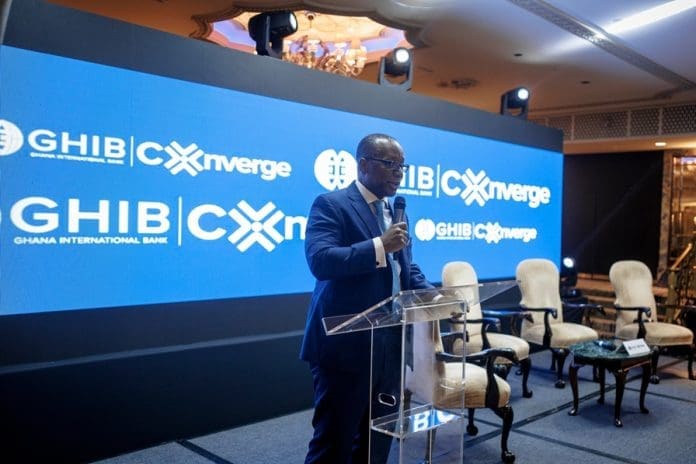
A $10 million deal to supply processed onions to Senegal slipped through West African hands last year, landing with European exporters instead.
Why? Local growers couldn’t secure financing for basic processing equipment despite abundant raw harvests.
This painful snapshot captures Africa’s $80 billion trade finance gap, a barrier Ghana International Bank CEO Dean Adansi calls “industrialisation’s invisible wall.”
Speaking at London’s GHIB CONVERGE 2025 conference, Adansi revealed how raw material dependence costs Africa billions. While the continent supplies global commodities, its share of value-added exports languishes below 14%. “For every $1 of trade finance unlocked, we see $1.70 in GDP growth,” he told the BBC, stressing that closing the gap could inject $133 billion yearly into sub-Saharan economies.
Ghana-owned GHIB, operating from London for 65 years, has directed $14 billion toward African trade since 2020—including $8.5 billion to West Africa in 2024 alone. Yet Adansi notes traditional banks often reject multi-year processing plant loans, leaving factories starved of capital. His solution: tailored tools like pre-export financing against buyer contracts, inventory loans, and equipment leasing.
Proof exists where finance flows smartly. Ghana now processes 15% of its cocoa locally, while gold refining investments boost returns. Research suggests raising Africa’s value-added export share to 25% could create millions of jobs and $50 billion extra revenue.
“But money alone isn’t magic,” Adansi cautioned. Unreliable power, rickety transport, and skills shortages still choke progress. He champions AfCFTA as a springboard for regional processing hubs, with blockchain and carbon finance tools helping meet sustainability standards.
“Pilot projects in key sectors can show the payoff,” he urged, calling for partnerships between banks, governments, and development lenders. “When Africa processes its own goods, gains echo in wallets—not just spreadsheets.”
